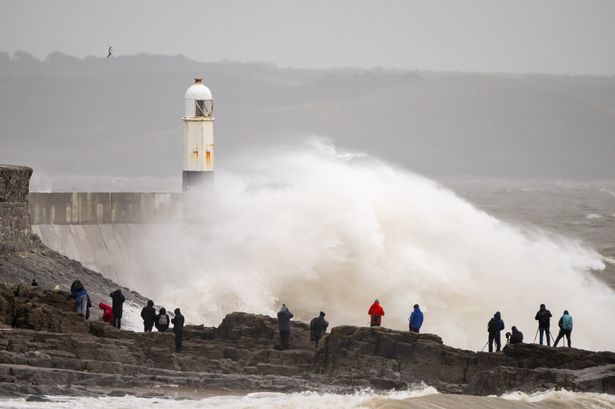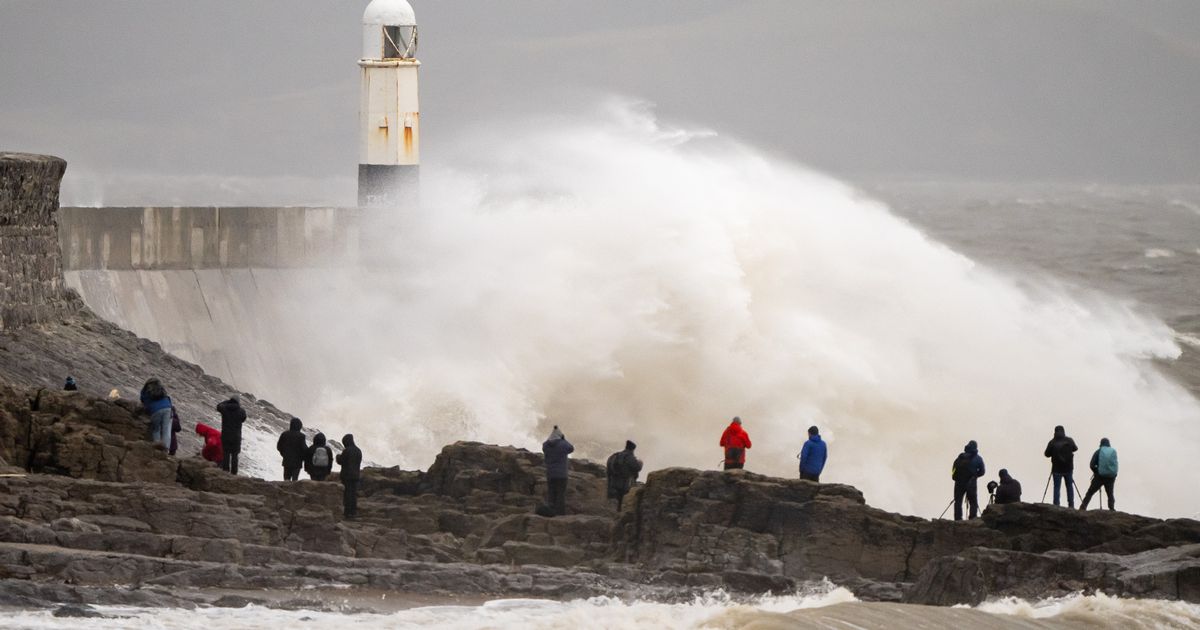There is a warning that waves could reach as high as 3m in coming days
09:10, 25 Aug 2025Updated 13:59, 25 Aug 2025
 Waves crashing in Porthcawl during Storm Isha in 2024(Image: Matthew Horwood)
Waves crashing in Porthcawl during Storm Isha in 2024(Image: Matthew Horwood)
A warning has been issued to people visiting a popular Welsh seaside resort this bank holiday after huge waves knocked people over, sweeping them onto boulders and causing injuries. Volunteer lifeguards said people need to “take extreme caution” when visiting Rest Bay in Porthcawl over the coming days due to the huge waves and strong currents expected.
From Tuesday, August 26, the settled and dry weather is expected to come to an end with ex-Hurricane Erin bringing rain and breezy conditions to the UK.
The RNLI also issued a warning to people visiting the Welsh coastline about the potential for unusual conditions, with large waves and hazardous sea conditions are being forecast.
Chris Cousens, RNLI water safety lead, said waves could reach 3m in south and west Wales which was much bigger than they would expect at any time of year, increasing the risk of rip currents.
The RNLI is urging people to visit beaches where lifeguards are on duty, if possible, as in Pembrokeshire alone, RNLI lifeguards have rescued 46 individuals earlier this month, including two young children. For the biggest stories in Wales, sign up to our daily newsletter
On Sunday morning, Rest Bay Lifeguard Club said it is “often not safe to enter the sea” when there is large swell and dumping waves on the slipway and advised people to only visit during RNLI lifeguard patrol hours.
A post on their Facebook page read: “There have been numerous incidents in the past 24 hours around high tide where large dumping waves on the slipway have knocked people over and swept them into the boulders at the sides of the slipway, sustaining injuries.
“Please take extreme caution outside of RNLI Lifeguards South East Wales patrol hours. It is often not safe to enter the sea either side of high water when there is large swell and dumping waves onto the slipway.
“Our advice is to visit during RNLI lifeguard patrol hours (10am-6pm) and swim between the red and yellow flags.
“Over the coming days there will be very strong currents in the direction of town, particularly on incoming tides. If surfing always stay to the golf club side of the lifeguard station and between the black and white flags when RNLI lifeguards are on patrol.”
Chris Cousens, RNLI water safety lead, also issued advice for those visiting the Welsh coast in the coming days. He said: “We want people to enjoy the bank holiday and stay safe, and with this unusually big surf forecast for this time of year likely to peak later in the bank holiday weekend and early next week, it’s important for people to be aware so they can keep themselves and their families safe.
“Big surf means greater risk from rip currents and the swell also coincides with spring tides – which means more powerful tidal water movement at greater speed.
“The forecast is changeable, so things might look different over the next couple of days. But we do know that with the current forecast for bigger waves building and arriving towards the end and the day after the August bank holiday weekend, beaches are likely to be busy with holidaymakers and locals.
“Some places could see bigger waves building through the weekend too.
“We always advise people to visit a lifeguarded beach where possible – but we also appreciate people will be out on the coast where lifeguards are not present.
“Rip currents are powerful channels of water that become more powerful in larger surf. They are also found around river mouths, estuaries and man-made structures like piers and groynes.
“Our rip current advice is the same whether you are at a lifeguarded beach or not. If you find yourself caught in a rip current don’t fight against it or you’ll get exhausted.
“If you can stand, wade back to shore, or swim parallel to the beach until you’re free of the current, then return to the beach. Alternatively, if you can’t do either of those or are becoming exhausted, Float to Live to preserve your energy and then wave and shout for help.”

